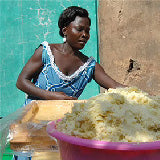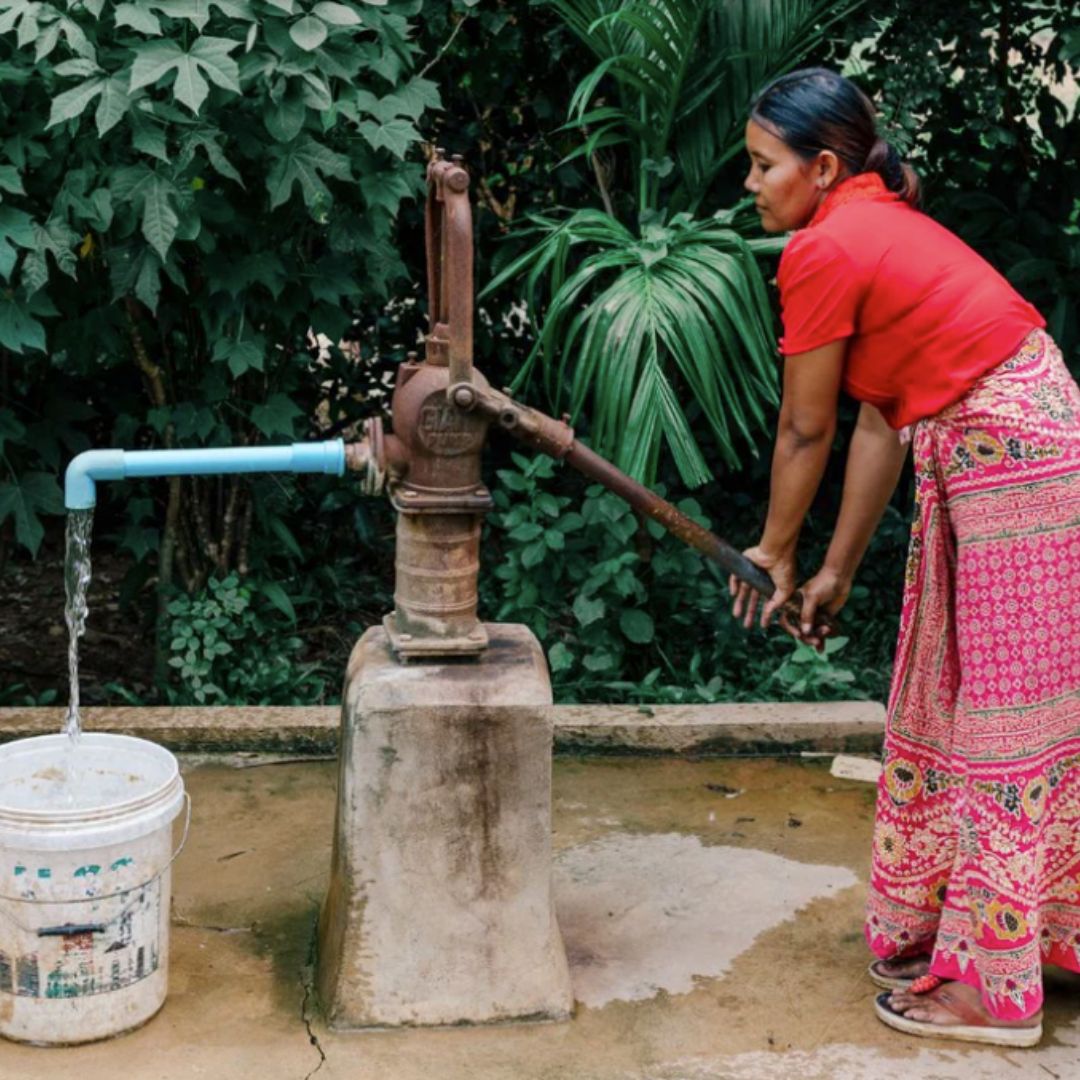Why Fair Trade?
Fair Trade practices put people and the planet first. They help create solutions to issues including the overuse of natural resources, women’s empowerment, refugee livelihoods, human rights, inequality and sustainable farming.
Fair Trade Enterprises support organic agriculture, adopt circular economy production processes, generate new models of social enterprise and create new ways to champion the dignity of workers, farmers, artisans and communities around the world.
10 Principles of Fair Trade
-
Create Opportunities for Economically Disadvantaged Producers
This means supporting marginalized, small producers, whether these are independent family businesses, associations or co-operatives. Fair trade seeks to move vulnerable producers out from poverty and into a secure income, self-sufficiency and ownership
-
Transparency and Accountability
The communication between all parties involved in the supply chain – from the management to the commercial relations – must be transparent, accountable and open.
-
Fair Trading Practices
An overall unity between organizations and producers is essential, which is consecrated with trust and mutual respect. Maximizing profits at a producer’s expense is not tolerated. Cultural identity and traditional skills are always championed.
-
Payment of a Fair Price
A fair price is one that has been mutually agreed by all through dialogue and participation which provides fair pay to the producers and can also be sustained by the market, taking into account equal pay for men and women and a Local Living Wage.
-
Assuring No Child Labor or Forced Labor
The organization must adhere to the United Nations’ Convention on the Rights of the Child, and local law on the employment of children. Any involvement of children in the production of products is disclosed and monitored and does not adversely affect the child’s well-being, security, education and need for play.
-
Commitment to Non-Discrimination, Gender Equality, Freedom of Association
No discrimination in hiring, compensation, access to training, promotion, termination or retirement based on race, caste, national origin, religion, disability, gender, sexual orientation, union membership, political affiliation, HIV/Aids status or age. The organization has a clear policy and plan to promote gender equality and respects the right of all employees to form and join trade unions of their choice and to bargain collectively.
-
Ensuring Good Working Conditions
Providing safe and healthy working conditions for all, working hours and conditions comply with national, local and International Labor Organization’s conventions. Fair Trade organizations are aware of the health and safety conditions of their producer groups.
-
Providing Capacity Building
Fair trade organizations uplift and foster development among their producers through specific activities to help them improve their management skills, production capabilities and access to markets.
-
Promoting Fair Trade
Partaking in fair trade practices is not enough. Organizations also raise awareness of the aim of Fair Trade and of the need for greater justice in world trade through Fair Trade. It advocates for the objectives and activities of Fair Trade according to the scope of the organization.
-
Respect for the Environment
Focus on the use of raw materials from sustainable managed sources and buying locally where possible are top priorities. So are reducing energy consumption and using renewable energy when possible, engaging in organic or low pesticide production methods and working with recycled or easily biodegradable materials for packing and goods dispatched by sea wherever possible.
Best Fair Trade Beauty Brands
Tierra & Lava
From Guatemala, Tierra & Lava believes you can have a product that is both kind to your skin and the earth. Every ingredient is sourced ethically and transparently.
Lucy Ashman, Tierra & Lava's founder, develops relationships with farmers and financially supports them to preserve farming traditions.
Conscious Coconut
Conscious Coconut produces superior coconut oil from a local Filipino community. As a Fair Trade Certified business, Conscious Coconut ensures just payment for farmers and factory workers as well as safe working conditions.
Conscious Coconut products are packed by adults with disabilities at the MacDonald Training Camp in Tampa, Florida. Each time a Conscious Coconut product is sold, the company also donates a meal to a child in need through Feeding America.
True Moringa
True Moringa’s Moringa oil is manufactured locally in Ghana and sourced ethically from smallholder farmers.
True Moringa founders Kwami Williams and Emily Cunnigham built True Moringa Natural skin & hair care with the mission of making wellness affordable and accessible to all. To date, they have worked with 5,000 farming families and planted 2,000,000 Moringa trees. They have increased farmer incomes by 4-10x.
Odylique
Odylique is one of the first companies to create certified organic and pure cosmetics, based in the UK. They make sure that their raw material suppliers and all of their distributors follow the no-testing-on-animals policy, and they also adhere to Fair Trade standards by utilizing re-usable and sustainable packaging.
Odylique chooses to test on human volunteers who have sensitive and allergy-prone skin instead of animals.



















